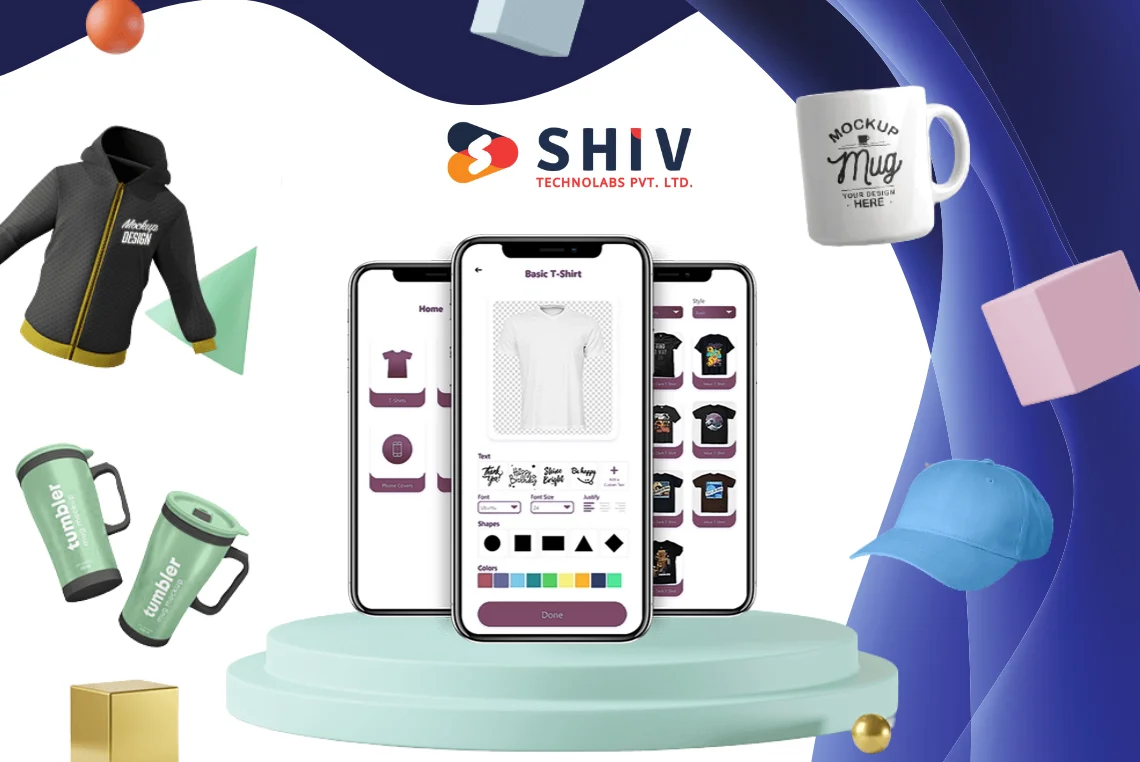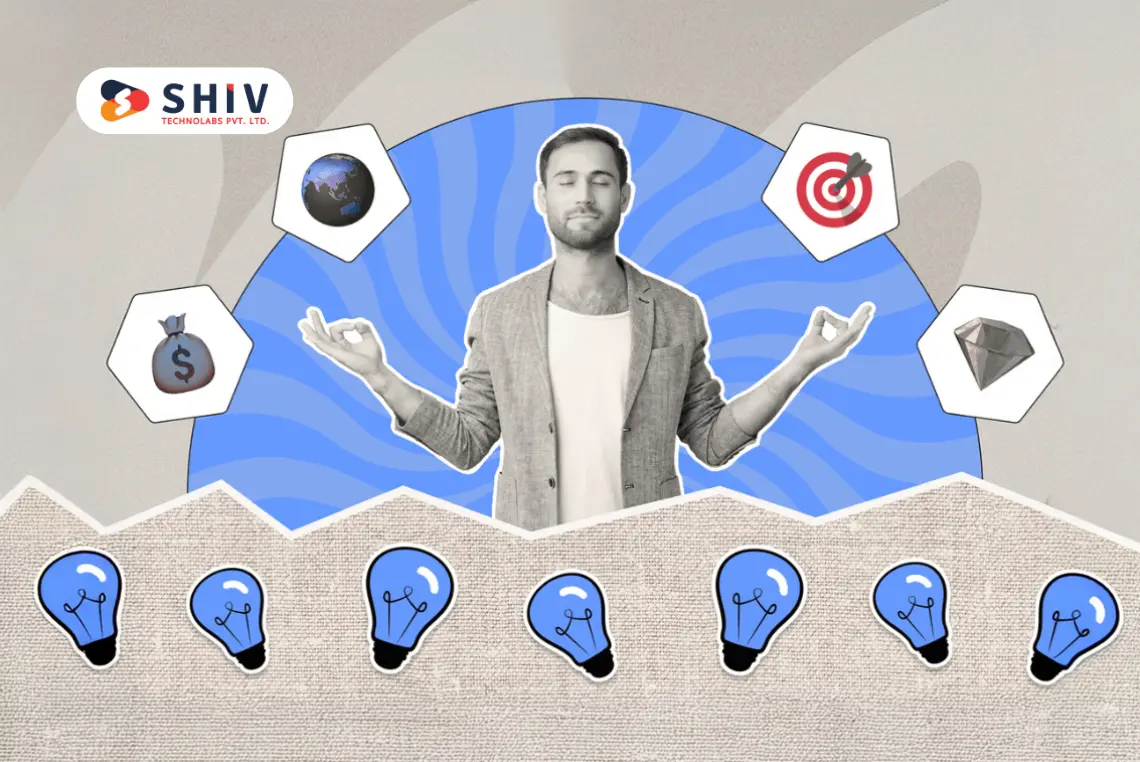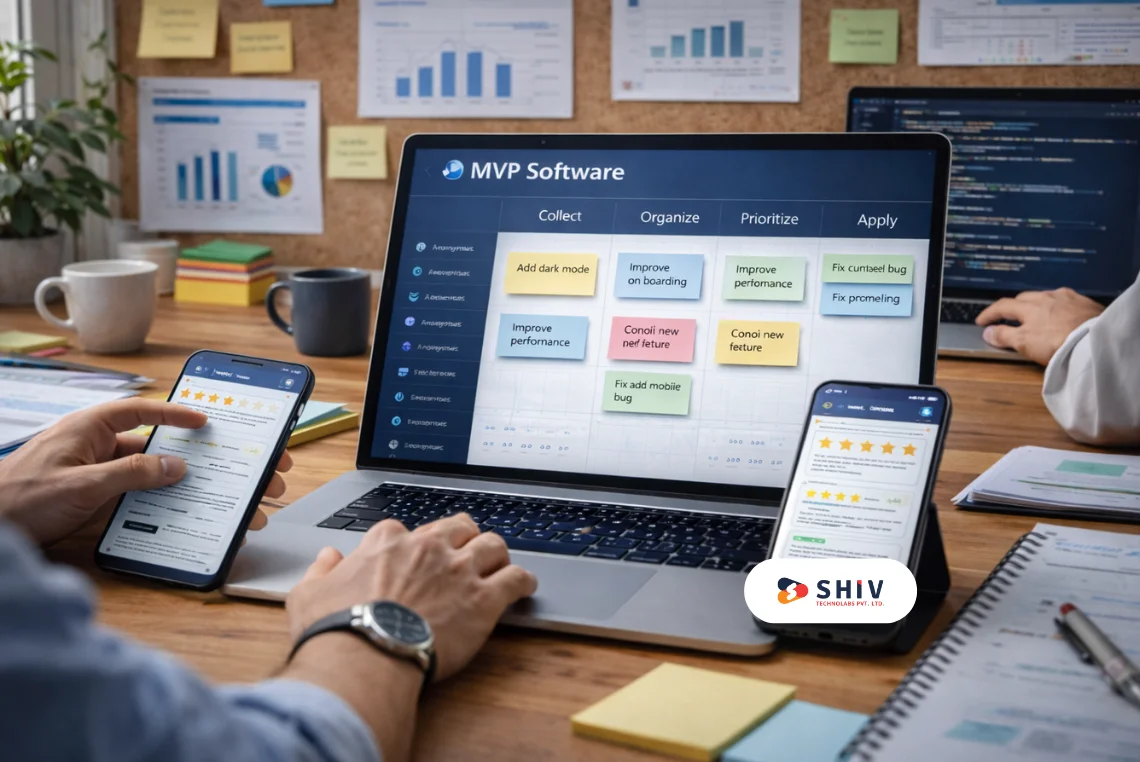Table of Contents
Creating your first mobile app for print-on-demand sounds like a good step forward. Especially with global e-commerce sales set to reach $36 trillion by 2026. But many founders rush into building apps without clear plans. This often leads to wasted money, slow development, and features that users ignore.
That’s where proper planning and skilled Startup Development Services are crucial. With the right team, you avoid wrong choices, cut delays, and only build what is needed. This article is for founders who want to build smart, from live previews to print partner support to future scaling.
If you want to build a mobile app for print on demand, explore this checklist before you start coding.
Why Off-the-Shelf Platforms Can Limit Your POD Startup’s Growth
Many founders begin with Shopify plugins or ready-made marketplace themes. It feels faster, but those tools are not made for long-term use.
Lack of Customization
Templates only let you change a few things. You can’t fully control how your app looks or works.
Vendor Lock-In
Most ready-made tools trap your data. You cannot easily switch to another print partner or integrate new tools.
Poor Scalability
Generic platforms struggle to handle growth effectively. You may face speed issues or pricing problems as you grow.
If you want better profit margins, full control, and a strong user experience, it’s better to build your own app. A custom print-on-demand app development solution lets you design each step, manage your backend, and own all your data.
Must-Have Features for Your Print-On-Demand App’s First Version
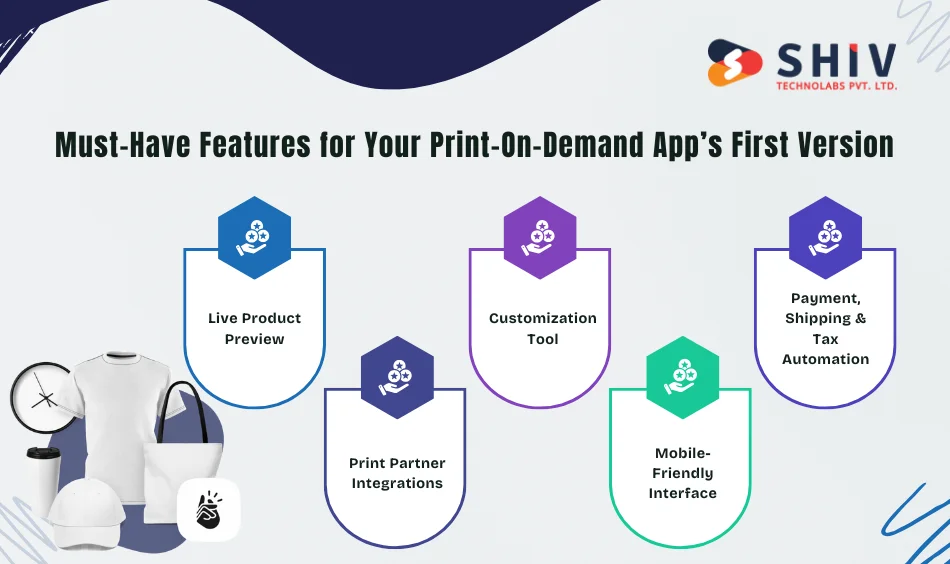
You don’t need every feature right away. Focus only on the basics that help your app start earning from day one.
Live Product Preview
Customers need to see their design on the product before buying. This builds trust and helps them decide faster.
Print Partner Integrations
Connect your app with services like Printful, Printify, Gelato, or Gooten. This helps in fast order handling and stock updates.
Customization Tool
Let users add text, upload images, change sizes, or pick colors. This tool is the core of your POD app.
Mobile-Friendly Interface
Almost 70% of online purchases now happen on mobile. Your app should look and work well on any screen size.
Payment, Shipping & Tax Automation
Consider using payment gateways such as Stripe or Razorpay. Automate shipping via APIs such as Shippo or EasyPost. Add tax rules based on user location to avoid errors.
Tech Stack Breakdown: What’s Best for POD Startups in 2025?
Your tech stack needs to support growth, easy connections, and your budget. Choose what works best not just what’s trending.
React Native vs Flutter
Both are great for cross-platform apps.
- React Native is good if you want quick web-to-mobile builds and more available developers.
- Flutter works better when you need high-quality visuals and better speed.
If your app needs detailed image tools, Flutter can be a better pick.
Firebase vs Custom Backend
- Firebase is ideal for early stages. It gives user login, live data, and backend functions in one place.
- A custom backend like Node.js, Django, or Laravel gives more control when your app gets bigger.
Start with Firebase for your MVP. Move to a custom backend when your app needs more power.
API Integrations with eCommerce Platforms
Most users continue to sell using Shopify, Etsy, or WooCommerce even though they have their own application. Implement secure APIs to synchronize orders, products, and delivery status.
MVP or Full App? What POD Founders Should Build First
Many founders want to build everything at once. That’s risky. Build a simple version first called MVP. This lets you test faster without spending too much.
What Does an MVP Look Like for POD?
- A working design editor
- A product list with live previews
- One print partner connected
- Easy checkout and order system
- Mobile-first design
You don’t need referral programs, rewards, or complex reports in the first version. Focus on the main flow: design > preview > buy.
Why MVP First?
- Launch faster
- Save on early costs
- Use real user feedback to decide next steps
- Change features based on real data
Think of your MVP as a test version. Build as long as you get it right once, then build it again based on what customers desire.
Biggest Mistakes Print-On-Demand Startups Make (And How to Avoid Them)
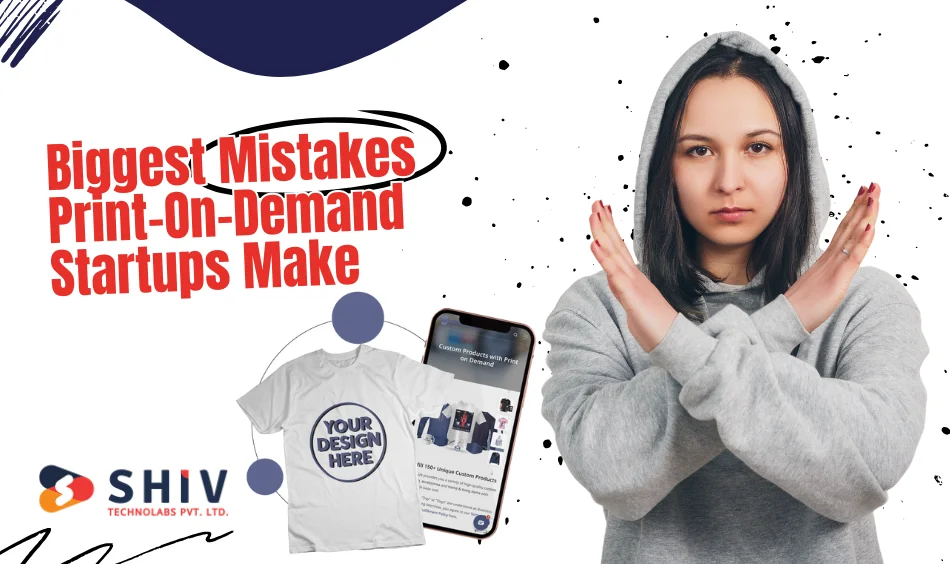
It is not sufficient to look good. Many startups fail to follow critical steps. Their mistakes can teach you.
Overbuilding in Version One
Adding too many features at once causes delays and high costs. Start small and test first.
Ignoring UX Flow
Bad navigation or hidden tools confuse users. This reduces sales. Test each part from a user’s view.
Skipping API Planning
Your app depends on print providers. If your APIs don’t work well, orders may fail and users may leave.
Hiring the Wrong Development Team
You need more than coders. Your team must understand how POD businesses work. Pick a Startup Development Services team with real experience in ecommerce and product tools.
How Much Does It Cost to Build a Print-On-Demand App?
This is the breakdown of the cost so you can know how to plan your budget.
Feature Complexity
More advanced features like 3D previews or large order systems cost more. For early stages, build a clean and simple version.
Platform Integrations
Each payment system, shipping tool, or print partner takes extra time to connect. Choose what is necessary first.
UI/UX Depth
A well-designed app costs more than a basic layout. If looks and experience matter, spend more on design.
Timeline
An MVP can be ready in 8 to 12 weeks. A complete app might take 4 to 6 months. Rushing leads to errors and more fixes later.
Hourly vs Fixed Pricing Model
Hourly rates offer more changes. Fixed price is better when the plan is clear. Pick what fits your way of working.
A basic MVP app should start as low as $10,000 and go up to $25,000 max, again based on your requirements and team location.
Choosing the Right Tech Partner for Your POD Startup
Making a POD app is not only about code. You need someone who understands the business side too. Your tech team should support your growth.
Look for Industry Experience
Ask if they have worked on print-on-demand or ecommerce tools before. They should understand how these systems work.
Validate Their Process
Check if they handle planning, wireframes, testing, and launch help. If not, you may face problems later.
Ask the Right Questions
- Can they link to your print partner?
- Do they have design experts?
- Can they manage both backend and mobile?
- Will their system grow with your app?
Shiv Technolabs, for example, offers full Startup Development Services. From MVP to full custom app builds with print integrations. You won’t need five different vendors.
Conclusion
Launching a print-on-demand app isn’t about adding every feature. It’s about building smart. Focus on a simple app that does its job well letting users customize products, preview them, and place orders easily.
A solid MVP keeps things clear and avoids mistakes. With good planning and a skilled Startup Development Company, you can go from an idea to a working app without tech confusion.
Shiv Technolabs is your perfect startup development partner with the best resources and skilled team for an MVP for print on demand startup. We have various e-commerce startups build the right way, from choosing tools to scaling features later.
Shiv Technolabs helps you build print on demand app. From previews to print partner setup, we manage it all so you can grow your business.

